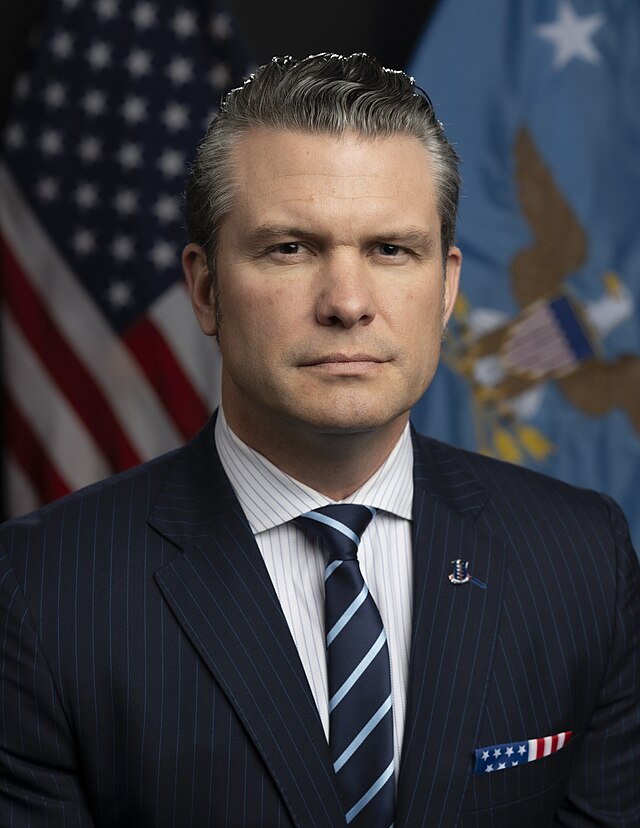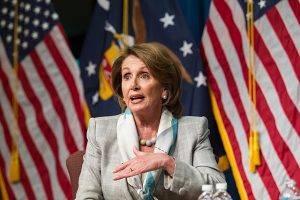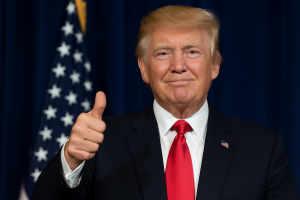In a forceful address to hundreds of the nation’s most senior military officers on Tuesday, Defense Secretary Pete Hegseth called for sweeping changes to the culture and standards of the U.S. armed forces, pledging to end what he described as an era of “political correctness” and “division” within the ranks.
Speaking at Marine Corps Base Quantico in Virginia, Hegseth declared that the Department of Defense — now referred to by the Trump administration as the Department of War — would reassert what he called a “warrior ethos,” emphasizing combat readiness, discipline, and physical fitness.
“The era of politically correct, overly sensitive, don’t-hurt-anyone’s-feelings leadership ends right now,” Hegseth told an auditorium of roughly 800 generals, admirals, and senior officers. “Either we are ready to win, or we are not.”
A Call to Abandon “Woke” Practices
Hegseth, a former Army National Guard infantry officer who served in Iraq, Afghanistan, and at Guantanamo Bay, argued that years of social and cultural initiatives had weakened military effectiveness. His remarks targeted diversity programs, gender-based policies, and investigations into hazing and misconduct — areas he said had distracted the armed forces from their central mission.
“We must be prepared,” he said. “No more division, distraction, or gender delusions. We are ending the war on warriors.”
The secretary unveiled a series of new directives intended to raise physical standards “to a single male level” across the force, tighten grooming policies, and remove restrictions on training practices in boot camps. He also pledged to eliminate “racial quotas” in promotions and to revise the Pentagon’s Inspector General’s Office, which has been investigating his leadership approach.
“No more beardos. The era of unacceptable appearance is over,” Hegseth said to a mixture of silence and applause from the assembled officers. “If you do not meet the male-level physical standards for combat positions, cannot pass a PT test, or don’t want to shave and look professional, it’s time for a new position or a new profession.”
Overhauling Military Leadership
Hegseth defended his recent decisions to replace top military leaders, including former Joint Chiefs Chairman Gen. C.Q. Brown and former Chief of Naval Operations Adm. Lisa Franchetti, calling the moves necessary to “reset the culture” of the armed forces.
“It’s hard to change a culture with people who benefited from that previous culture,” he said. “Foolish and reckless political leaders set the wrong compass heading, and we lost our way. We became the ‘Woke Department,’ but not anymore.”
Brown and other senior officers had previously emphasized diversity in recruitment and leadership pipelines, arguing that a force reflecting the nation’s demographics strengthens cohesion and legitimacy. Hegseth rejected that approach, insisting that merit-based advancement alone should determine promotions.
“The department is clearing the way for leaders to be leaders,” he said. “We are returning to the fundamentals of strength, discipline, and excellence.”
He warned the audience that anyone uncomfortable with the new expectations should consider stepping down. “If what I’ve said makes your heart sink,” he told them, “then you should resign.”
Trump Backs Hegseth’s Vision
Following Hegseth’s address, President Donald Trump took the stage to reinforce the secretary’s message, praising the military and promising to “restore toughness” to America’s defense forces.
“Secretary Hegseth is doing a tremendous job,” Trump said. “We’re making the U.S. military stronger, tougher, faster, fiercer, and more powerful than it has ever been before.”
The president reiterated his belief that the military must focus not only on threats from abroad but also on what he described as “dangers from within.”
“I told Pete, we should use some of these dangerous cities as training grounds for our National Guard,” Trump said, referring to high-crime areas in the United States. “We’re under invasion from within.”
The comments drew attention for their suggestion that domestic unrest could be treated as a training opportunity for the armed forces — an idea some defense analysts later warned could blur the traditional separation between military and law enforcement roles.
Reshaping the Department of Defense
The Quantico event was unprecedented in scale. More than 800 flag officers — generals and admirals at the one-star level and above — were summoned from bases around the world with only a few days’ notice. Many were told little about the agenda, leading to speculation about possible personnel cuts or major shifts in defense strategy.
Officials familiar with the planning said the meeting reflected Trump and Hegseth’s desire to directly communicate their new priorities for the military, including a greater emphasis on border security, combat readiness, and missile defense.
The Department of Defense, now rebranded as the Department of War, did not disclose the cost of flying in so many senior leaders on short notice, though estimates suggest the travel expenses alone could reach several hundred thousand dollars.
A Pentagon spokesperson declined to comment on specific policy changes announced at the event but said additional guidance would be provided to commanders in the coming days.
Physical Standards and Leadership Expectations
Hegseth’s new directives will reportedly mandate uniform physical fitness standards across all branches, remove certain exemptions previously granted to women in combat roles, and expand unit-level authority over training practices.
He emphasized that these reforms are meant to ensure readiness for “lethal, high-intensity conflict.” “We are not a social experiment,” he said. “We are a fighting force.”
He also announced a review of senior officer fitness and conduct, stating that “no one, regardless of rank, is exempt.” Hegseth said the military had grown “top-heavy” and vowed to hold commanders to stricter performance and health benchmarks.
Political and Institutional Reaction
The sharp tone of Hegseth’s remarks drew a range of responses across Washington. Supporters of the administration praised his call for accountability and higher standards, arguing that the military had become overly bureaucratic. Critics, however, said his comments risked undermining morale and could discourage recruitment.
Former defense officials also questioned the legality of some of the proposed measures, particularly the removal of protections related to hazing investigations and gender-based standards. “Those safeguards exist to prevent abuse,” one retired general told reporters. “Reversing them could have serious consequences.”
Civil rights organizations expressed concern that ending diversity programs would roll back decades of progress in inclusion. The National Military Family Association urged the department to “prioritize professionalism and safety, not rhetoric.”
Hegseth, however, dismissed these criticisms as political. “We’ve spent too long worrying about what the loudest critics in Washington think,” he said. “It’s time to focus on winning wars, not winning headlines.”
Budget Uncertainty and Broader Context
The Quantico meeting occurred as Congress faced a looming government shutdown, raising questions about how potential funding lapses could affect the military. Without a new spending bill, roughly 2 million service members would be required to continue working without pay after October 1.
According to the Pentagon’s contingency plan released earlier in the week, active-duty personnel would remain on duty, with priority funding directed toward operations on the southern border, the Middle East, and shipbuilding for Trump’s proposed “Golden Dome” missile defense system.
Officials emphasized that all travel costs incurred during the meeting would be reimbursed once federal spending resumes.
A Pivotal Moment for the Armed Forces
For Hegseth and Trump, the gathering represented more than a policy announcement — it was a symbolic moment marking what they described as the restoration of the U.S. military’s “core identity.”
“This is about leadership,” Hegseth said in closing. “It’s about courage, discipline, and the willingness to fight and win. We are at a turning point, and the world is watching.”
As the officers filed out of the auditorium, many declined to speak publicly, citing the sensitivity of the directives. Several, however, privately described the meeting as one of the most direct confrontations between political leadership and the military establishment in recent history.
Whether Hegseth’s reforms will take hold — or face legal and institutional resistance — remains to be seen. But the message was unmistakable: under the Trump administration’s second term, America’s military leadership is being asked to embrace a harder, more uncompromising vision of service.

Emily Johnson is a critically acclaimed essayist and novelist known for her thought-provoking works centered on feminism, women’s rights, and modern relationships. Born and raised in Portland, Oregon, Emily grew up with a deep love of books, often spending her afternoons at her local library. She went on to study literature and gender studies at UCLA, where she became deeply involved in activism and began publishing essays in campus journals. Her debut essay collection, Voices Unbound, struck a chord with readers nationwide for its fearless exploration of gender dynamics, identity, and the challenges faced by women in contemporary society. Emily later transitioned into fiction, writing novels that balance compelling storytelling with social commentary. Her protagonists are often strong, multidimensional women navigating love, ambition, and the struggles of everyday life, making her a favorite among readers who crave authentic, relatable narratives. Critics praise her ability to merge personal intimacy with universal themes. Off the page, Emily is an advocate for women in publishing, leading workshops that encourage young female writers to embrace their voices. She lives in Seattle with her partner and two rescue cats, where she continues to write, teach, and inspire a new generation of storytellers.









